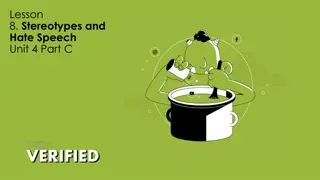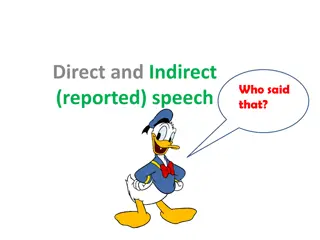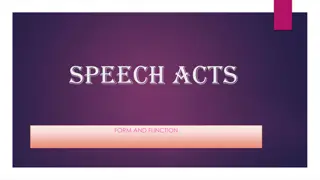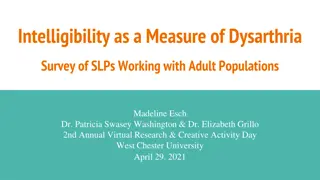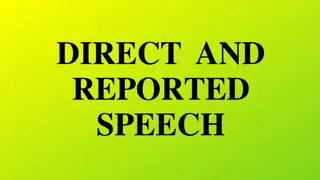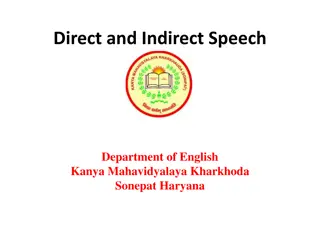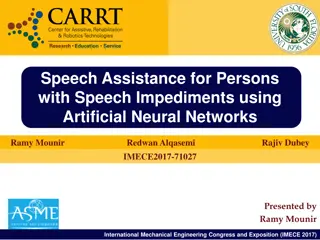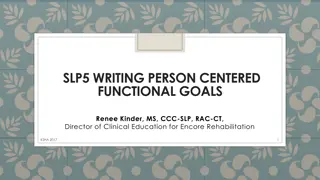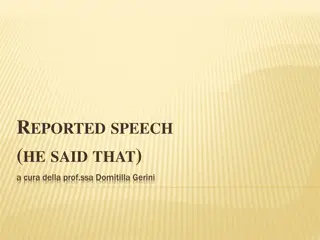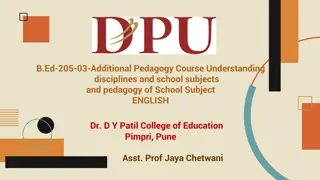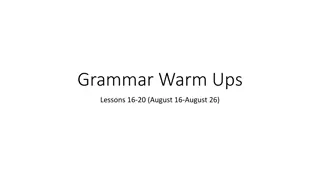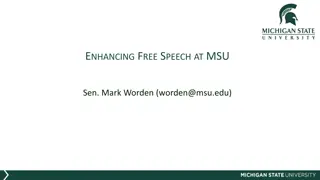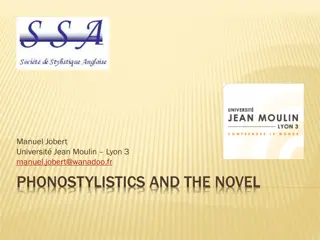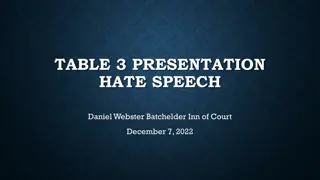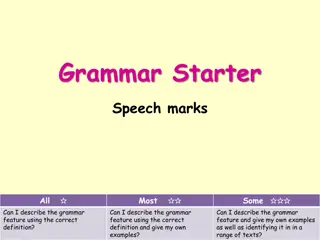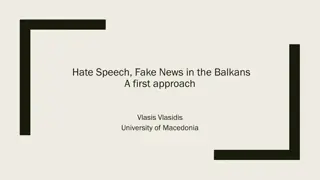Understanding Parts of Speech in Grammar
Explore the fundamentals of grammar with a focus on parts of speech such as nouns, pronouns, articles, adjectives, verbs, adverbs, conjunctions, and prepositions. Learn how sentences are structured and how to enhance them with elements like subjunctive clauses and gerund phrases.
Download Presentation

Please find below an Image/Link to download the presentation.
The content on the website is provided AS IS for your information and personal use only. It may not be sold, licensed, or shared on other websites without obtaining consent from the author. Download presentation by click this link. If you encounter any issues during the download, it is possible that the publisher has removed the file from their server.
E N D
Presentation Transcript
We all want progress, but if you're on the wrong road, progress means doing an about-turn and walking back to the right road; in that case, the man who turns back soonest is the most progressive. Experience: that most brutal of teachers. But you learn, my God do you learn. If you look for truth, you may find comfort in the end; if you look for comfort you will not get either comfort or truth only soft soap and wishful thinking to begin, and in the end, despair. Education without values, as useful as it is, seems rather to make man a more clever devil.
We will cover Parts of speech Complete sentences Fragments Run-ons Joining Practice
Nouns: a person, place, or thing Amanda writes A+ papers. She visited the Writing Center. Pronouns: a word that takes the place of a noun She always knows what to say to him. He went to their concert.
Articles: a, an, and the Mary is looking for an apartment. I can t find the right word. Adjectives: words that modify a noun Jeff throws awesome parties. Clowns are scary.
Verbs: words that exress action Lori rides the bus to school. Apple pies are delicious. Adverbs: words that modify a verb Jerry is doing well. Matt wears extremely tight pants.
Conjunctions: a joining word I need two tacos and a beef enchilada. Ellen will graduate in either December or May. Preposition: spatial, temporal, or directional words We are on the second floor. Ruthi went to the meeting.
Sentences are groups of words that express a complete thought. At the minimum, a sentence needs a subject (usually a noun) and a verb. Irma writes. Often, a direct object follows. Irma writes an e-mail. Sometimes, there are indirect objects. Irma writes an e-mail to her sister.
We can add subjunctive clauses. Irma, my best friend, writes an e-mail to her sister. We can add gerund phrases. Irma, my best friend, writes an e-mail to her sister, knowing her sister won t respond. We can add other parts of speech. Irma, my best friend, hurriedly writes an angry e-mail to her annoying sister, knowing her forgetful sister won t respond.
A sentence is called a fragment, if it is incomplete. UHCL offers many majors. Such as education, computer science, and composition. So we have to revise the fragment to make it complete. UHCL offers many majors, such as education, computer science, and composition.
A sentence is called a run-on (or comma splice or fused sentence) when we do not use the correct punctuation to join together a compound sentence. Do not turn in a paper when you are done writing it first edit the paper. So we have to revise the run-on to break up the sentence. Do not turn in a paper when you are done writing it; first, edit the paper.
An independent clause is a clause that can be a complete sentence on its own. We can join together two independent clauses with the right punctuation. This can be done with coordinating conjunctions or semi- colons.
With a coordinating conjunction: Run-on: I enjoy the finance and statistics class I just hate the writing classes I have to take. Correction: I enjoy the finance and statistics class, but I just hate the writing classes I have to take. With a semi-colon. Run-on: It is hard to imagine a more stimulating topic than semi-colons I wonder what we will learn next. Correction: It is hard to imagine a more stimulating topic than semi-colons; I wonder what we will learn next.
Source: Purdue Online Writing Lab http://owl.english.purdue.edu/owl/


![Prevention and Combating of Hate Crimes and Hate Speech Bill [B.9B.2018]](/thumb/60513/prevention-and-combating-of-hate-crimes-and-hate-speech-bill-b-9b-2018.jpg)

